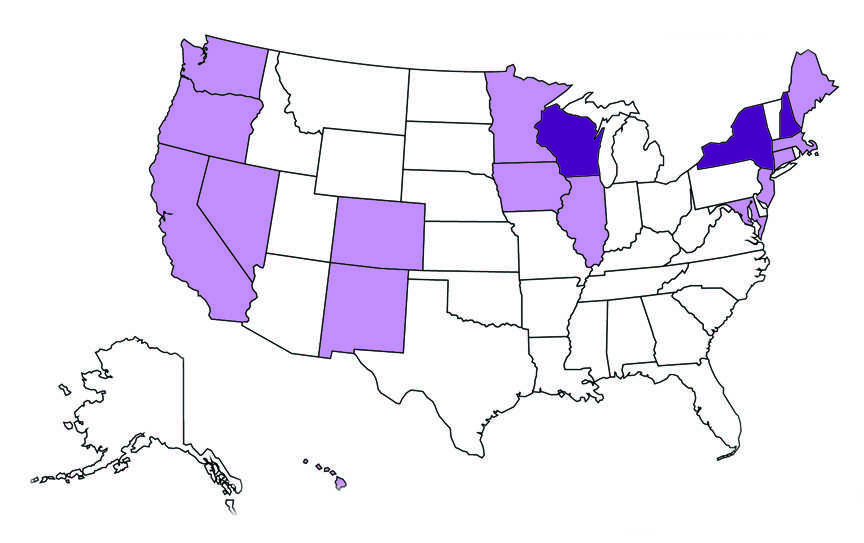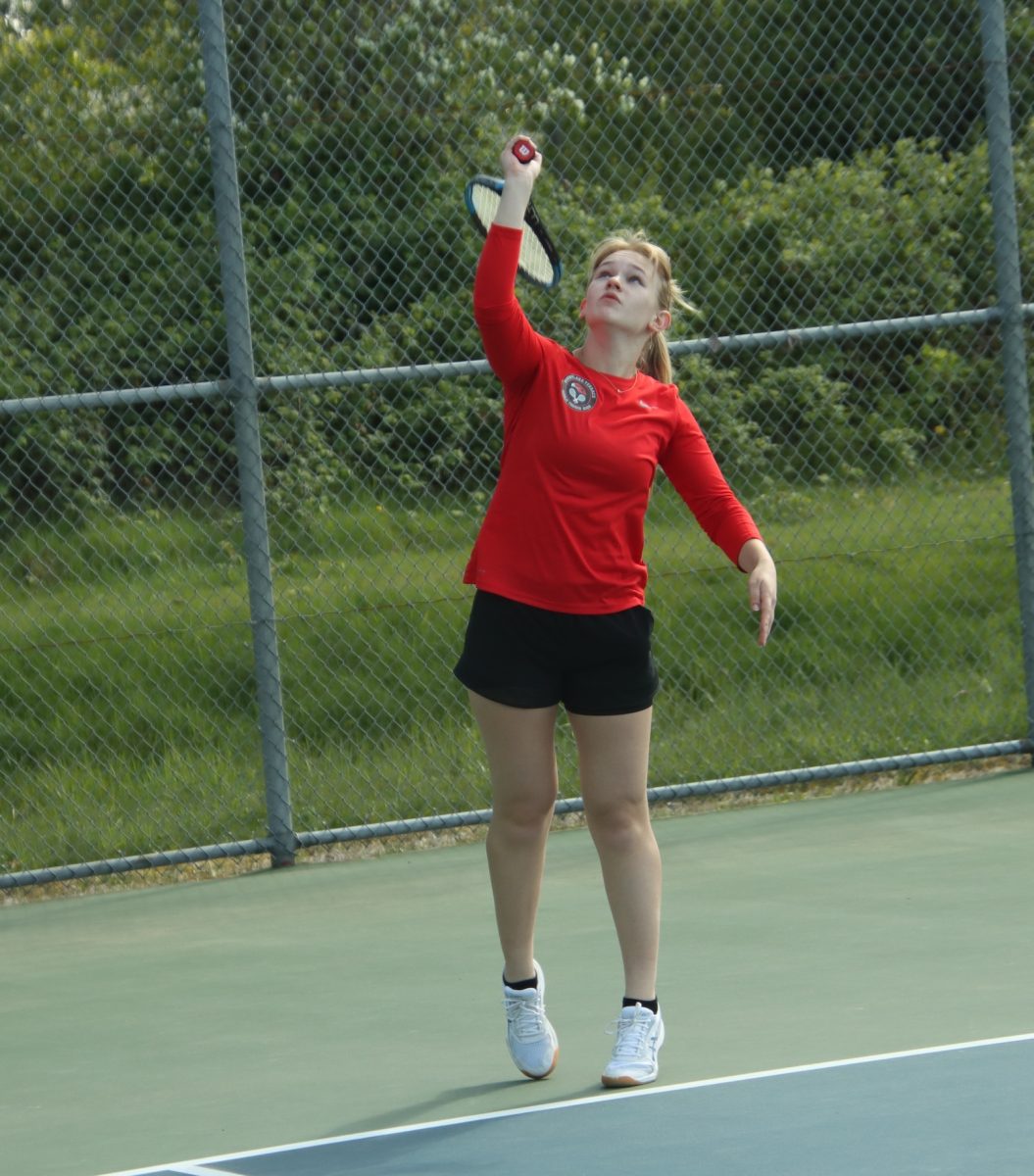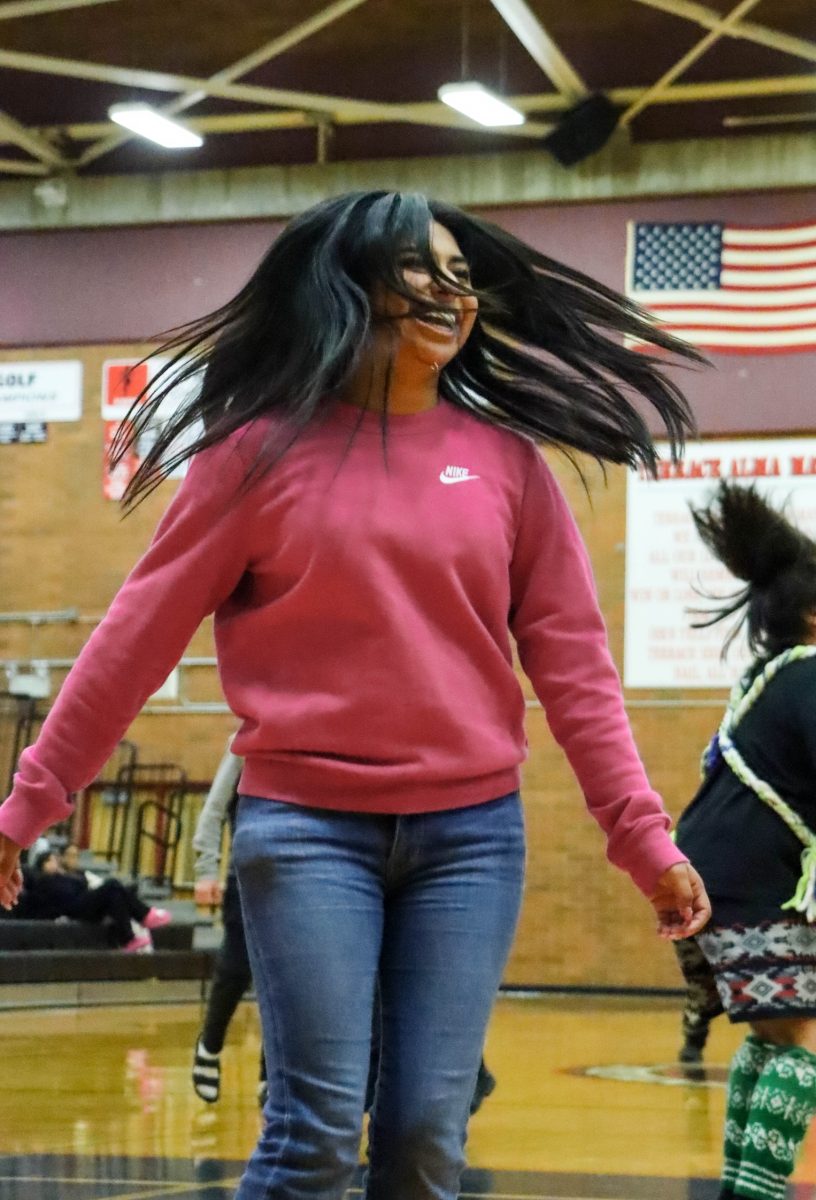It was in the shower when freshman Flynn Thomas thought, “What if I was a boy?” He described it as “just another random thought among the millions of others.”
However, the more he thought about it, the more he realized that it would make him happy to be male rather than female.
“Then I just said, ‘Wait that would make me a much, much happier person.’ I could feel much more free and I just thought, ‘What if I could try it?’” he said.
And so he did.
Halfway through eighth grade, Thomas became one of the 1.5 million transgender people in the United States.
According to a 2014 New York Times article, about 0.5 percent of the U.S. population identifies as transgender.
Being transgender means that you do not identify as the sex you were born as.
When a person is born, there will be a letter, either ‘M’ or ‘F,’ written on the corresponding birth certificate. But, as a person grows older, some may feel themselves acting more like the opposite gender.
“Not everyone is a boy and masculine or a girl and feminine,” Thomas said. “It’s more about your feelings.”
The Oxford Dictionary defines sex as “either of the two main categories (male and female) into which humans and many other living things are divided on the basis of their reproductive functions,” and gender as “the state of being male or female (typically used with reference to social and cultural differences rather than biological ones).”
Still, MTHS Psychologist Julie Schwab defined sex as what a person is “born genetically predisposed as” and gender as how someone defines him or herself.
Making the transition
Unlike Thomas, 2012 MTHS alumnus Ryan Karnoski didn’t realize he was transgender until after high school.
He didn’t understand that the feelings of dissociation he had from his body were normal, or that to change gender was even possible.
He said that even if he did understand those feelings, it would have been difficult for him to balance his school life and all of the medical, governmental and social impacts that come with transitioning to another gender.
When a person transitions from one gender to another, it is recommended to visit transliterate health clinics, to use hormone replacement therapy (HRT) and to get consistent blood work done for years to check endocrinology levels.
If the person is younger than 18, parental consent is required for HRT.
Along with this, many health clinics require an individual to see mental health professionals before prescribing HRT at all.
Karnoski said even if he had understood his feelings during high school, he would not have transitioned due to misogynistic experiences he endured from staff and fellow students.
He recalled several occasions of being verbally attacked, called a queer and even occasionally bullied by staff.
Karnoski called MTHS, as it was when he attended, a “red dot in a blue state” compared to downtown Seattle, and said you could not pay him to come back to attend MTHS.
Karnoski advises not to “out” somebody else as transgender as it could put their safety at risk due to the violent behavior some people may have toward transgender people.
He said he is not open about being transgender in everyday social situations because it would be difficult and “bizarre.”
When Thomas first began the transition, he said that most of his friends didn’t use the correct pronouns, often using the word she instead of he, and they assumed that his transitioning was just a “phase.”
Even now, after having identified as male for almost a year, Thomas is still occasionally called “she” by his peers.
When teachers use the wrong pronoun, Thomas will correct them, but he usually doesn’t like explaining why because he feels it can be too personal of a subject sometimes.
Thomas said when he first came out, people would confront his twin sister about it instead of him.
“[My peers] all came up to [my sister] and they asked her ‘Why is Flynn doing this? Flynn is a girl,’” Thomas said. “They just stared at me. They never came up to me.”
But now, Thomas said identifying as male makes him feel happy and normal.
ESD addresses the issue
The Edmonds School District (ESD) adopted a new policy on Dec. 12, 2014 that addresses transgender students.
The policy states that it will recognize the importance of an “inclusive approach toward transgender students.”
It includes several requirements for faculty, such as using the correct pronoun and not disclosing a student’s gender to other students or parents without the student’s consent unless legally required. All district faculty will have to comply with all of the rules within the policy.
Gender and athletics
According to Education Portal, an online resource for improving your grades and expanding your knowledge, gender stereotypes are defined as over-generalizations about the characteristics of an entire group based on gender.
Schwab said the reason for gender stereotypes relates to quality or performance in certain activities, including athletics.
Junior Hailee Malins, a female wrestler, feels gender roles have negatively impacted her, mostly in her athletic activities.
“People say that [wrestling] is something I can’t do or people question my reasons for doing it when my main reason for doing it is because I enjoy doing it,” Malins said.
Malins said she has never been one to follow gender stereotypes because she has always felt content with who she is.
Junior Joey Owens, a male cheerleader, said it’s harder to do certain things due to the differences between the male and female physique, but he’s trying to do everything the other cheerleaders can.
For example, Owens said it’s harder for him to do the splits, but after working on it, he’s able to do it just as well as many of the girls on the team.
“People just assume that cheerleading is a girls’ sport or activity,” Owens said. “I think over the years [cheerleading] has just become a mainly female activity.”
Both Owens and Malins are the only members of the their gender on their respective sports teams.
The history behind a sport also plays a large part in why people correlate certain sports to a specific gender, according to Malins.
She said people won’t generally do activities, such as sports, outside of their gender norms because they think they will be perceived in a negative way.
Malins said wrestling is easy for her because she knows what she wants to do and is confident in herself.
According to Owens, there are apparent differences in being the only male on an all-female team, but on the MTHS cheerleading team, it usually goes unnoticed.
He said he and the girls on the team are very good friends and they all treat each other equally.
Schwab said that the athletic culture at MTHS is becoming more accepting and tolerant, and the overall environment is becoming more welcoming to all students.
“We have more athletics that accept both genders. I would hope that we are creating a more gender neutral society in our school where it’s less sorting based on biological boys and biological girls,” Schwab said.
Toward acceptance
Karnoski addressed jokes made towards genders and their stereotypes.
He said gender stereotypes stem from what society dictates is “normal” or “correct.”
“The jokes that are made about gender stereotypes might seem harmless to the people who they cleanly apply to, but for those who don’t, they are especially detrimental,” Karnoski said.
“Even for people who generally fit into gender role stereotypes, it seems unfair that people should be expected to perform their gender in very limiting, arbitrary ways, such as pink for girls or blue for boys,” he continued.
He said most people will find gender stereotypes harmless, but that there’s a lot more to it.
“It’s impossible to say that gender stereotypes are harmless. For every unexcused gender stereotype that seems benign, such as a girl wearing a dress or a boy liking sports, there is a child beaten, made homeless or, in the case of Leelah Alcorn [a transgender female in Ohio], driven to suicide by her parents for not conforming to gender role stereotypes,” Karnoski said.
When it comes to how people treat others, Malins said it directly relates to gender.
For example, she said sometimes guys will treat each other badly simply because males are usually not ones to show friendly emotions toward each other.
Karnoski agreed that gender impacts the way people treat each other.
He said that now, as a male, people are less likely to question his intelligence and invade his personal space, but are more likely to be polite in retail environments and ask him for advice on subjects.
Overall, he believes he is treated much better by others.
“This is because gender stereotypes are complex and intersectional, based off of many different identities and presentations,” Karnoski said.
Schwab stressed the discomfort of students who do not fit into either traditional gender sphere.
“I think that [the feeling of not fitting into a gender stereotype] begins well before high school, but that at the high school age feeling different can be pretty stifling and gender is one area that people [can become] overwhelmed about,” she said.
Malins said many high-school aged students will feel the need to follow certain gender roles and won’t do certain activities because of how it will be seen by others.
Schwab calls MTHS a “fairly welcoming community comparatively,” but said there is still more work to be done to make the school community a more aware and accepting environment.
She said MTHS needs more education and more activities that don’t divide students among gender identity.
To this, Thomas agreed.
“If you’re going to separate a classroom or have certain people do certain things, do not say ‘boys stand up [or] girls stand up,’” he said. “I’ve stood up when boys have to stand up, and then everyone comes to me and asks ‘Why did you do that? You’re not a boy, you’re a girl.’”
Thomas said he also feels MTHS students take gender into high account when socializing with one another.
He says since he’s transitioned, he has stopped looking at gender and instead at personality.
“Think of people as people [and] not whether they have a boy body or a girl body. That doesn’t matter,” Thomas said.








